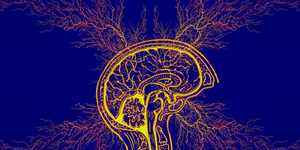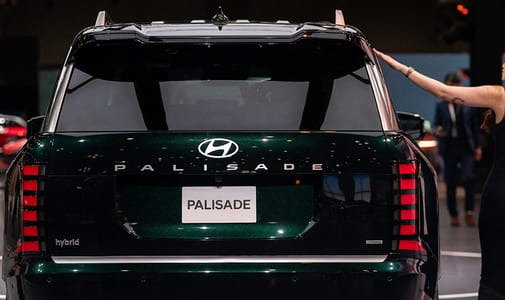Jozsef Graf: "I don't have a faction"
The minister for agriculture and regional development still does not want to be prime minister. He thinks a minority government can work. Food prices can be brought under control by increasing production, but he is prepared to "negotiate" about a Fidesz proposal to cut VAT on food.
hvg.hu: Since the Free Democrats left the government, you have often been mentioned as a potential prime minister. You have always rejected these suggestions, but never unambiguously. Might you be prime minister or not?
József Gráf: I have always been an agriculture specialist. It's a field I understand, and that's why I was prepared to accept the ministerial post. I know that I had the professional skills for the job. That's not enough on its own, so I had some doubts when I took on the post. But no agriculture minister has served as long as this in Hungary. I've been a minister for three years, so it would seem that I'm doing ok both professionally and politically. To return to your question:
I've never dealt with healthcare or educational or energy policy, so with the day-to-day tasks of a prime minister. And I know how much work being agriculture minister is: sometimes I work both days of every weekend for three or four months in a row, accepting invitations to agricultural shows.
I'm not complaining - but I have my doubts about whether I could rise to the challenge of being prime minister. And I'd add that the uncertainty of March and April is now in the past. The minority government seems to be working. The real test of its effectiveness will be if we can get the tax laws and the budget passed. I don't see any reason for the Hungarian Socialist Party to consider changing prime ministers. Given the state of the budget and the results of the convergence programme, I see a good chance of the budget being passed.
Admittedly, I wasn't pleased with the coalition's breakdown. I thought we should continue governing with the Free Democrats, making the necessary compromises. That's not what happened. But it's important to keep on cooperating with them.
hvg.hu: Would it be good if the Free Democrats returned to the coalition? At the price of a new prime minister, perhaps?
J.G.: That's not politically realistic. Cooperation from outside the coalition seems like the only realistic path, and I think both sides are willing to do this.
hvg.hu: You didn't say: "No, I won't be prime minister."
J.G.: I've said before that there is no never in politics. My task is to support the government and the prime minister in consolidating the situation. I think it's 99.9 per cent certain that I won't be prime minister. I don't want to be and I'm not going to make any efforts to get there.
hvg.hu: Isn't there a Graf group inside the Socialist Party?
J.G.: There isn't. There are several kinds of groups within the party, but I don't have a single person behind me with the task of strengthening my position.
hvg.hu: On the first anniversary of the New Hungary Regional Development programme you said that you had received more than 35,000 applications for project support, and that some Ft500bn had been claimed. How much money can be claimed?
J.G.: There's about Ft1,300bn available. Around Ft320-330bn has already been awarded. That doesn't mean it's all been paid out: it takes two years to modernise a pig farm, and the accounting comes afterwards. Only around Ft23bn has been paid out so far. We can't award the whole amount in one year, because we'd run out of money, and this programme will run for seven years. We can pay for investments in machinery - if somebody buys a machine and brings the bill, we can pay it. But if somebody is going to carry out construction works for two years, he'll only see the money at the end of the second year.
hvg.hu: How much do people have to contribute themselves when they apply for a grant?
J.G.: It depends on the type of investment. Generally, people have to contribute 50-60 per cent, but in the case of certain investments in environmental protection they only pay 25 per cent.
hvg.hu: A few days ago Fidesz suggested VAT on basic foods should be cut from 20 per cent to 5 per cent. You replied that cutting VAT would not reduce prices in the long run. What did you mean?
J.G.: The Socialist-Free Democrat government cut VAT. It was found that the VAT cut was eclipsed within six months. I spoke to economists who made the same point: they thought that not VAT, but corporation tax should be cut. But cutting VAT on basic foods like meat, flower and milk, as the opposition proposes, could be a starting point for discussions. But increasing production is the best way of regulating food prices. If we increase production, then prices won't get out of control. We've produced some 30 per cent more wheat this year than last year, and corn production has doubled. The prices of the two crops have fallen from some Ft60,000 per tonne to Ft30,000-40,000. But, given the increased production, this hasn't had such a bad effect on producers.
hvg.hu: With oil at $140 a barrel, politicians and economists are calling for biofuels to play a greater role in energy production. Could Hungary be the Kuwait of the 21st century?
J.G.: There is a philosophical discussion all over the world about whether food should be turned into other things. My view is that the crops we produce should serve the country's and its people's interests. If it's economical to generate energy using some of our agricultural output, then I have no moral concerns. But the UN secretary general has criticised biofuel production, saying some 850m people are starving in the world.
But not producing ethanol isn't the answer. Fossil fuels are running out. Hungary will have good grain production this year - some 16-18m tonnes of it. We use 8m tonnes at home. We have serious grain stores.
Why can't we use 2m tonnes of it to produce energy? But we shouldn't go too far: some countries are turning their entire production into ethanol. A grain shortage brings price rises. Hungary needs three or four big ethanol factories. We won't be the Kuwait of the 21st century, but we can cut our energy dependency.
hvg.hu: Fruit producers poured their wares onto the square in front of Parliament last week, protesting about low wholesale prices and demanding help from the government. Will the state support them?
J.G.: As an EU member, Hungary can't give subsidies that distort competition or directly intervene in the market. If we gave any direct support, we'd have to pay five times more in fines to the EU - which would hurt other producers. Producers have to understand that they will have good and bad years.
In the west, people don't pour their milk out in front of the ministries - but in front of the headquarters of the big grocery chains. The buyer is the partner, not the state. Twenty years after the regime change, people are still expecting the state to solve their problems.
hvg.hu: In EU member states, smallholders who use pure fertiliser and don't pollute the environment get serious state subsidies. As do those who raise animals "humanely". Can Hungarian producers be encouraged to move in this direction too?
J.G.: We have funds available for environmentally aware farming. Those funds will grow in size from 2012. Until then, Hungarian producers will only get 64 per cent of the subsidies that are received by farmers in the old member states. The EU keeps introducing new rules on plant and animal protection. At the same time, we hope, German, Austrian and also Hungarian buyers will become more environmentally aware.
Péter Szegő

















